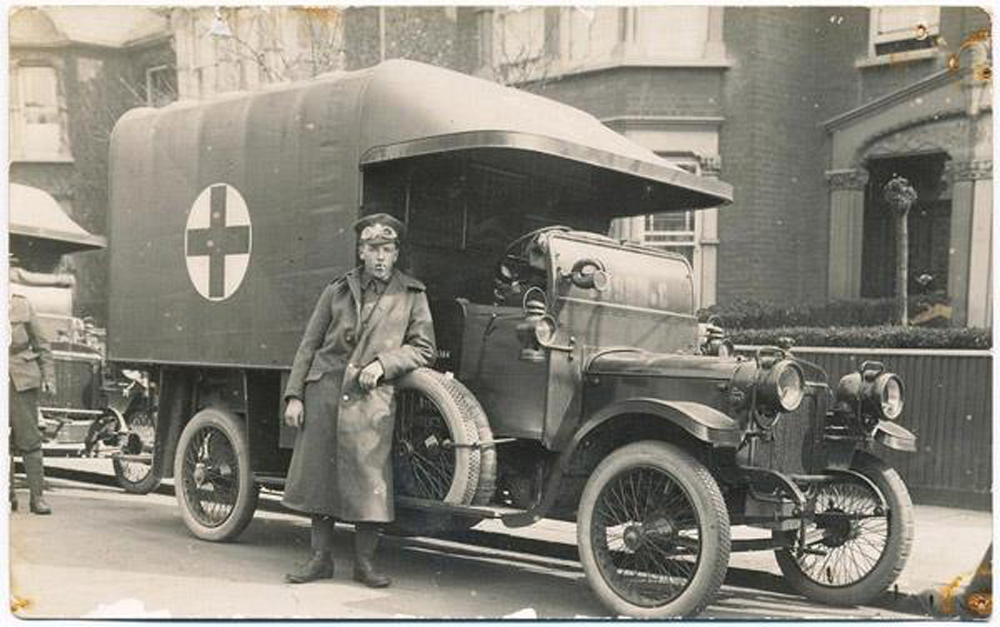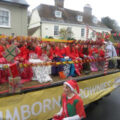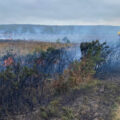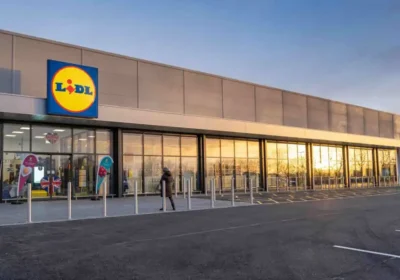November 11 is VE Day, the anniversary of Europe declaring victory in the First World War.
This month, the world unites to remember those who fought and fell in the 1914-1918 conflict – and all others who lost their lives in military conflict.
Here, thanks to help from research from the Shaftesbury Remembers The Great War project, we tell stories of how the Dorset community rallied to do its bit to win the war…
BEFORE 1914, Dorset was a busy, largely agricultural community with an economy based primarily around the work of farmers.
Bustling markets were held weekly in towns like Sherbourne, Gillingham and Shaftesbury, where goods such as butter and cheese, as well as animals, would be traded.
In Shaftesbury, cattle would be driven down the High Street to market each week, pigs in netted milk carts, creating a busy town centre packed with dozens of horse-drawn vehicles.
On August 4, 1914, everything would change. The United Kingdom declared war on Germany. The routine and culture of agricultural life in Dorset would change for everyone, forever, over the next four years of conflict.
Those carts bringing cattle to town would be replaced by vehicles transporting troops from around the country – and from around the globe – who came to Dorset for training before heading to the frontline in mainland Europe.
Dorset was also a place of refuge for many, including evacuees from big cities, as well as providing care at Red Cross Hospitals in places like Mere, Gillingham and Bourton.
It was also home to a prisoner of war camp at Milldown, Blandford, which eventually housed some 270 internees, many of whom worked at a sawmill on the site.
The county of Dorset, like the rest of the world, would never be the same…
THE COMMUNITY
THE war effort united Vale communities in support of those who had gone to fight.
Nearly 18,000 charities were founded across the country, many to supply ‘home comforts’, including books, to those fighting overseas.
But needs at home also had to be addressed. With so much of the male workforce now away, women and children stepped up to fill those roles.
Voluntary work was seen as a duty, as was fundraising for the war effort and much besides.
From the start of the war, there is evidence of Vale communities coming together to raise money.
Communities held whist drives, fetes, rifle matches, concerts and more, giving proceeds to charities and funds backing the war effort.
When the war ended in 1918, fundraising efforts did not, with soldiers still serving and many in prisoner-of-war camps.
WOMEN IN THE WAR
THOUGH not on the frontlines, women played a hugely important part in the war effort.
The call for volunteers became conscription in January 1916, leaving huge shortfalls in labour – and women answered the call.
A booklet issued by the War Office in September 1916 detailed roles being filled by women, including photographs. They showed women making false teeth, staffing a brewery, gauging shells at a munitions factory in a shipyard and more.
“It aimed to demonstrate women had successfully taken on jobs formerly occupied by men, and thus encourage the release of additional male workers into the armed forces,” says the Dorset History Centre.

Women took on jobs traditionally filled by men
Picture: Dorset History Centre
CHILDREN AND SCHOOLS
AS men went to war and women took up new jobs in their absence, children too played their part in the war effort.
Schools played a big part in fundraising, for example in 1916 the girls’ high schools of Shaftesbury and Gillingham raised money for the British Red Cross during sales of homemade food, flowers, teas and more. Nearly £54 was raised – around £4,500 in today’s money.
Also in 1916, records show that Bourton’s Red Cross Hospital reported in April it was full up and appealed for donations of ‘anything and everything’ to help. Bourton School was among those who answered the call, providing vegetables.
The school later organised a ‘Pound Day’, when households were encouraged to donate pound weights (450 grams) of goods such as rice and sugar. Pupils were among those going door-to-door to collect donations.
One task the children completed fulfilled a purpose they were actually unaware of. In the summer months, youngsters were often absent from class in order to work, with older children making up the shortfall in farm labour.
Entries in various school logbooks show occasions when pupils were taken out to pick horse chestnuts and blackberries. It turns out, unbeknownst to the children, the horse chestnuts were used to make cordite – a bomb-making ingredient – most likely at the Royal Navy Cordite Factory in Holton Heath.










Leave a Reply